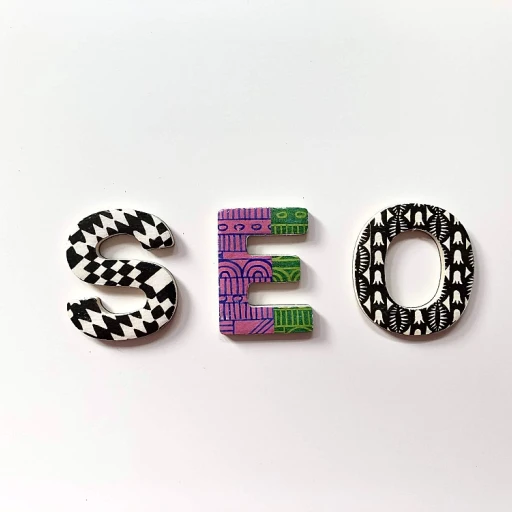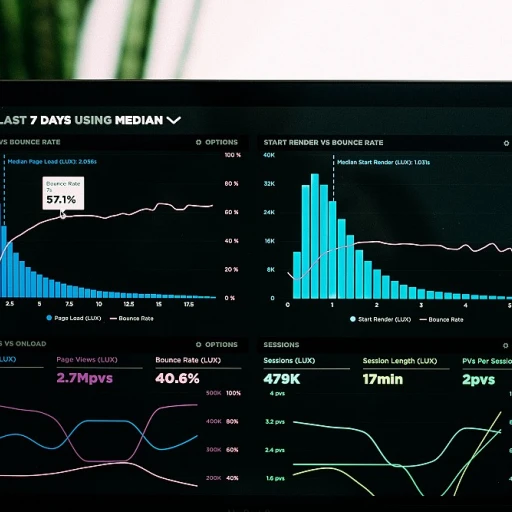
Understanding AI's Impact on SEO
AI's Influence on Modern Search Practices
Artificial Intelligence (AI) has firmly rooted itself in the realm of search engine optimization, ushering in a new era of digital marketing. As we delve into the nature of AI's impact on SEO, it becomes clear how AI refines and reshapes traditional optimization strategies. Through the lens of recent industry discussions and events, such as MozCon, insights into AI's integration within SEO have become increasingly apparent. With the constant evolution of how people use search engines, AI plays a crucial role in refining the relevance and precision of search results. This is evident in how Google search algorithms have incorporated AI-driven enhancements to better understand and predict search queries. By examining user experience patterns, AI facilitates the delivery of tailored content that aligns closely with users' true intent, making brands more competitive in the ever-changing digital landscape. On platforms like Google, AI manages to analyze vast amounts of data to adjust SERP results with remarkable accuracy. The intricate relationship between AI and SEO is transforming conventional optimization into a more data-driven and predictive approach. This advancement not only elevates the efficiency of digital marketing strategies but also aids marketers in executing future-proof techniques that resonate with an increasingly sophisticated audience. As AI continues to evolve, it's essential for SEO specialists to adapt and integrate these technologies into their operational processes. The promise of AI in SEO lies not just in automation but in enabling a deeper understanding of consumer behavior, driving a more personalized and impactful user experience. Those who can skillfully navigate these technologies will likely lead the way in creating more dynamic and user-centric SEO strategies. For more insights into how conversational AI is affecting SEO in Southeast Asia, explore the rise of conversational AI and its implications on future search dynamics.AI-Driven Keyword Analysis
Unleashing the Power of Keywords with AI
The Evolution of Keyword AnalysisIn the rapidly changing landscape of seo and digital marketing, the role of keywords continues to hold significant importance. However, the methods by which these keywords are analyzed and implemented have seen profound changes, thanks to the introduction of artificial intelligence into the mix. Modern tools now enhance the capabilities of seo specialists, providing a deeper, more comprehensive understanding of search queries and user intent. The Role of AI
Artificial intelligence provides an advanced means of processing search data. It not only identifies primary keywords but goes beyond to reveal secondary keywords, related search terms, and contextual similarities. This enriched data output is crucial for crafting seo content that aligns more accurately with user intent. Enhanced User Experience
This AI-driven approach also improves user experience by aligning content more closely with user needs and expectations. By effectively predicting what users are searching for, brands can tailor their content strategy to meet these demands, ensuring that their site remains relevant and engaging in future search landscapes. AI in Action: Practical Implementation
AI tools streamline the arduous and time-consuming task of keyword research, making it possible for seos to focus more strategically on crafting content that resonates with audience intent. These tools facilitate seamless integration of video seo strategies, helping to capitalize on the growing trend of video content by identifying keywords that boost video visibility on search engines. The Path Forward
As search engines like Google continue to evolve and core updates alter the ranking landscape, the ability of AI to predict future trends will further differentiate the digital marketing strategies of successful brands. The way brands leverage AI integration will increasingly determine their visibility and relevance in search engine results pages (serps). To explore more about optimizing seo strategies with AI, you might find this article unveiling leading voices in health and wellness insightful. It may not only enhance your understanding of AI's role but also offer perspectives on maintaining seo authority amid evolving search engine practices.
Content Optimization with AI
Transforming Content Strategies with AI
The future of SEO is closely tied to the capabilities of artificial intelligence in content creation and optimization. AI has revolutionized how brands approach their marketing strategies, allowing for more tailored and efficient content delivery. This transformation is evident in how search engines, especially Google, evaluate and rank content. AI technologies can analyze search data and adapt content to meet not just current user queries but also anticipate future search trends.
AI-driven content tools provide SEOs with the ability to harness predictive analysis, making digital marketing endeavors more informed and strategic. For instance, AI can offer insights into user behavior patterns, thus helping marketers to optimize their content in alignment with core updates and search volume shifts.
Moreover, AI advancements integrate with video SEO, allowing for the optimization of video content to capture and retain user attention effectively. By deploying AI, brands can ensure their video content remains at the forefront of search engine results pages (SERP), enhancing user experience and engagement. For those keen on exploring possibilities and making their strategies future proof, navigating new AI-driven methods can be enlightening. Expanding on navigating new AI-driven methods offers deeper insights into leveraging AI for your brand.
As AI continues to shape how content is crafted and refined, SEO specialists must embrace these technologies to stay ahead. The focus is on strategically leveraging AI to respond to core updates and aligning content with the evolving digital landscape. Despite the unprecedented advantages AI offers, challenges remain, particularly in ensuring ethical use and avoiding potential pitfalls.
AI and User Experience
Enhancing the Search Experience
Artificial intelligence plays a pivotal role in elevating user experiences on search engines. With AI advancements, brands can deliver personalized, dynamic content that addresses user intent more effectively. This focus on user experience goes beyond mere search; it's about creating an engaging interaction that anticipates user needs. Search engines like Google employ AI to analyze patterns and refine the way content is presented in search engine result pages (SERPs). By understanding these patterns, search engines can tailor search results to be more relevant and user-centric, ultimately improving the overall search experience. AI's capacity to evaluate vast datasets allows it to identify shifts in user behavior. This capability helps digital marketing teams adjust their strategies accordingly, ensuring that their content remains aligned with user expectations and search queries. Marketing professionals can harness these insights to better shape their content strategies and increase user engagement. A key aspect of AI's impact on user experience is how it can enhance technical SEO. From optimizing page load times to ensuring seamless navigation, AI-driven solutions provide real-time updates that can significantly improve site performance. As SEO specialists focus on these technical aspects, they contribute to a more satisfying user journey. Moreover, AI improves the way people interact with multimedia content such as video SEO. Analyzing viewer behavior, AI can guide content creators in crafting videos that capture and maintain audience interest, reinforcing brand loyalty and increasing the effectiveness of marketing campaigns. The fusion of AI and user experience shows immense potential for future innovation. As search engines evolve and digital experiences become more personalized, companies that prioritize AI-driven user experience strategies will likely stay ahead in the competitive world of SEO.Predictive Analytics in SEO
Forecasting Trends with Predictive Analytics
In the rapidly evolving landscape of digital marketing, predictive analytics has become a key player in shaping the future of SEO. As search engines like Google continue to refine their algorithms, understanding search patterns through data analysis has gained substantial importance. Predictive analytics empowers brands to anticipate future trends by analyzing existing search data and marketing insights. This capability allows businesses to craft strategies that are future-proof and aligned with emerging trends.
Using predictive analytics, SEO specialists can better understand and forecast search volume fluctuations and emerging search queries. By doing so, they are able to fine-tune their content strategy to match evolving user needs and position their publications higher on Search Engine Results Pages (SERPs). The intelligent application of this technology can be a game-changer for search engine optimization experts looking to establish authority and trust in their respective fields.
Moreover, predictive analytics offers insights into potential impacts of algorithm updates and core updates on SEO content. By being prepared for these changes, companies can mitigate risks associated with sudden shifts in search algorithms. This proactive approach is especially useful when technical SEO adjustments are needed to maintain or improve a site's ranking.
As AI continues to advance, its integration with predictive analytics tools becomes more sophisticated. With platforms such as ChatGPT and others contributing to the analytical process, the depth of data interpretation is enhanced. This evolution offers significant opportunities for crafting SEO content that resonates with both search engines and users. Video SEO strategies and other content forms benefit immensely from these insights, allowing marketers to engage audiences more effectively.
Investment in predictive analytics is not only about staying competitive but about offering users an improved experience. Brands that excel in this area often experience greater user satisfaction by providing relevant, timely content that aligns with user expectations and intent.













